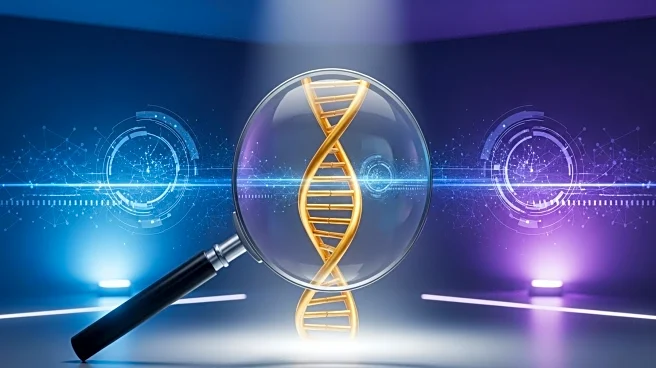What is the story about?
What's Happening?
Recent research has uncovered a variant of the immune protein cGAS in naked mole rats that enhances DNA repair, potentially contributing to their extended lifespans. Naked mole rats, known for their longevity of up to 37 years, possess a unique version of cGAS that boosts DNA repair, unlike the human and mouse versions which suppress it. This discovery, led by Zhiyong Mao at Tongji University, suggests that the accumulation of mutations due to inadequate DNA repair is a significant factor in aging. The study demonstrated that genetically modified fruit flies producing the mole rat version of cGAS lived longer than their unmodified counterparts. The findings open possibilities for extending human lifespans through gene editing and mRNA delivery to replicate the mole rat's DNA repair capabilities.
Why It's Important?
The implications of this research are significant for the field of anti-aging therapies. By understanding and potentially replicating the DNA repair mechanisms of naked mole rats, scientists could develop new strategies to combat aging in humans. This could lead to breakthroughs in medical treatments that enhance longevity and reduce age-related diseases. The ability to modulate the activity of cGAS through pharmacological or genetic means could have profound effects on health and lifespan, offering a new avenue for improving human longevity. Such advancements could impact healthcare systems, increase life expectancy, and alter societal structures related to aging populations.
What's Next?
Future research may focus on developing small-molecule drugs that can mimic the effects of the naked mole rat's cGAS in humans. Additionally, efforts to genetically engineer human cells to produce the mole rat version of cGAS could be explored, although challenges remain in achieving sufficient expression in key cells. The study encourages further investigation into other molecules, like hyaluronic acid, that contribute to the mole rat's longevity, potentially leading to a multi-faceted approach to human anti-aging therapies. Collaboration between geneticists and pharmacologists will be crucial in advancing these findings into practical applications.
Beyond the Headlines
The ethical considerations of extending human lifespans through genetic modification and drug therapies are complex. While the potential benefits are substantial, questions about access, equity, and the societal impact of significantly longer lifespans must be addressed. The research also highlights the importance of understanding natural longevity mechanisms, which could shift the focus from treating age-related diseases to preventing them through enhanced biological resilience.
















